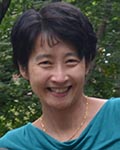2008, 2015
Janet Y. Chen
- Associate Professor
- Princeton University

Abstract
“Guilty of Indigence” studies the lives of the urban poor and changing patterns of poor relief during a period of deepening social dislocation in China. The project traces the evolution of new attitudes towards poverty and new social welfare practices that emerged in the early twentieth century. At the same time, it places the urban poor at the center of historical inquiry. Drawing on hundreds of letters written by people living in workhouses, relief homes, and shantytowns in Beijing and Shanghai, “Guilty of Indigence” examines their hopes, frustrations, methods for coping with destitution, and often desperate struggles to survive.
Abstract
How did ordinary people learn to speak Mandarin in China? What constituted the language we call Mandarin at its various stages of historical formation, and how did it become a meaningful part of people’s lives? These questions are the inspiration for “The Sounds of Mandarin,” a project that investigates the creation of the national language in China and Taiwan at the turn of the twentieth century. By charting its fate as a social and cultural process, rather than the endpoint in the journey to linguistic unity, this book challenges the assumption that “Mandarin” was born whole at the time of its creation, and reconsiders how the idea and multiple realities of a national language intersected with the lives of ordinary people.

